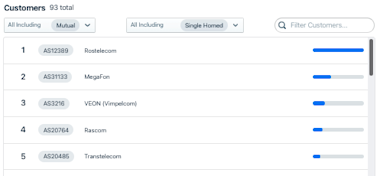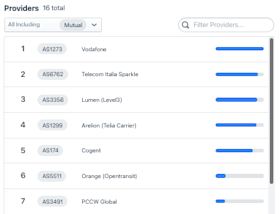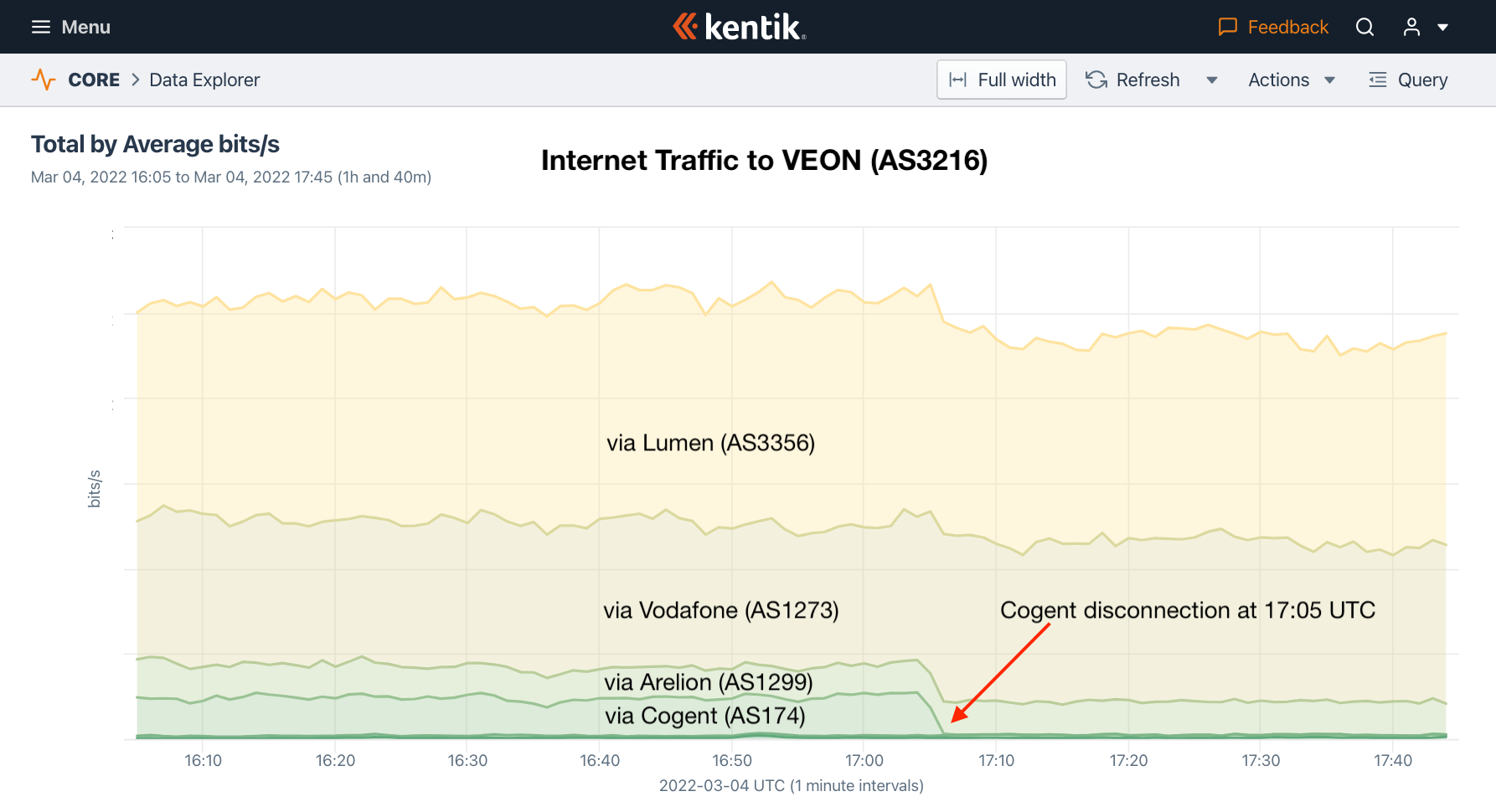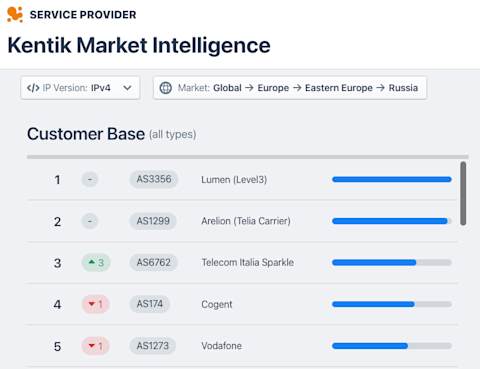Updated: Cogent and Lumen curtail operations in Russia


Summary
In our updated blog post, read why international telcos Cogent and Lumen say they are taking action against Russia.
Reader’s note: On Friday, March 4, we published this blog post to comment on Cogent’s decision to terminate their commercial relationships with their Russian customers. Today, March 7, another international telecom, Lumen, announced that it will also take action. We’ve updated this blog post to reflect the latest information we have.
On Cogent
Despite Ukraine’s recent request that it be disconnected from the global internet, Russia remains online. However, as of 5pm GMT on March 4, Russia became connected to the world via one less international telecom.
On March 3, Cogent sent emails to their customers in Russia advising them about the immediate termination of their commercial relationships due to Russia’s invasion of Ukraine.
In light of the unwarranted and unprovoked invasion of Ukraine, Cogent is terminating all of your services effective at 5 PM GMT on March 4, 2022. The economic sanctions put in place as a result of the invasion and the increasingly uncertain security situation make it impossible for Cogent to continue to provide you with service.
All Cogent-provided ports and IP Address space will be reclaimed as of the termination date. For any colocation customers, your equipment will be powered off and kept in the rack for you to collect.
If not collected within thirty days, the equipment will be removed from the rack and stored. For any utility computing customers, you will not have access to your servers after the termination of service. The servers will be disconnected and kept in storage by Cogent for an indeterminate period.
Disconnecting their customers in Russia will not disconnect Russia, but it will reduce the amount of overall bandwidth available for international connectivity. This reduction in bandwidth may lead to congestion as the remaining international carriers try to pick up the slack.
Cogent is one of the biggest internet backbone carriers in the world. In fact, it is a member of the rarified Transit-Free Zone which is a small group of global telecoms so large that they don’t pay anyone else for transit (international internet bandwidth). TFZ telecoms exchange internet traffic for free with other TFZ members and charge smaller networks for bandwidth.
Based in the United States, Cogent sells transit all over the world including the Russian market. If we pull up the list of Cogent’s Russian customers in Kentik Market Intelligence we can get a sense for the potential impact. Below is a screenshot from KMI of just the top five Russian customers of Cogent based on transited IPv4 space. It includes both Russian state telecom Rostelecom (AS12389) as well as Russia’s other national fiber backbone operator Transtelecom (as known as TTK, AS20485). Russia’s mobile market is dominated by a “big three” of MTS (AS8359), Megafon (AS31133) and VEON (formerly Vimpelcom, AS3216). Of these, Cogent has two of the three Russian mobile carriers as customers.

If we take what KMI estimates to be Cogent’s largest customer in Russia (Rostelecom) and pivot to see who they buy transit from, we see the view below. The loss of Cogent would leave Rostelecom with several other options for transit including Vodafone (AS1273), Telecom Italia Sparkle (AS6762), Lumen (AS3356), and Arelion (formerly Telia, AS1299).

In addition to the telecoms listed above, Cogent provides service to Russia’s search engine Yandex (AS208722) as well as StormWall (AS59796), a Russian DDoS mitigation firm defending three of the 31 prominent Russian websites on Ukrainian Vice Prime Minister Fedorov’s target list.
As Russia becomes increasingly disconnected from the financial system, Russia’s communication companies may have difficulty paying foreign transit providers for service.
Andrew Sullivan, president of the Internet Society, recently responded to requests to remove Russia from the Domain Name System (DNS), with an impassioned plea. “Cutting a whole population off the Internet will stop disinformation coming from that population—but it also stops the flow of truth,” he wrote.
A backbone carrier disconnecting its customers in a country the size of Russia is without precedent in the history of the internet and reflects the intense global reaction that the world has had over the invasion of Ukraine.
UPDATE (7 March)
Visible impacts of the disconnection
Russian telecoms VEON (formerly Vimpelcom, AS3216) and Transtelecom (TTK, AS20485) lost Cogent transit service at 17:05 UTC on Friday, 4 March, minutes after the deadline. However, as of today, state telecom Rostelecom (AS12389) and mobile operator Megafon (AS31133) are still using Cogent transit.
The change in inbound traffic for VEON is pictured below.

It is worth noting that VEON and TTK also provide transit into the countries of Central Asia and Mongolia. Therefore the disconnection of Cogent from the Russian market has some downstream impacts into Kazakhstan, Tajikistan and Uzbekistan.
When Cogent disconnects from Rostelecom, it will also impact the internet in Iran, Azerbaijan, Belarus, and the contested geographies of Crimea and Abkhazia.
As a result of the loss of customers VEON and TTK, Cogent has dropped one position in the KMI overall Customer Base rankings (pictured below) in Russia. When they lose Rostelecom and Megafon they will be out of the Top 10.

Lumen’s announcement
In the wake of Cogent’s decision to terminate services to its Russian customers, Lumen published a statement on Monday concerning its business in Russia.
Among the announcements, Lumen stated that it will stop the sale of any new services to either Russia-based companies as well as non-Russia-based companies that were providing services in Russia. Additionally, Lumen states that it “terminated an agreement to provide services to an existing Russian financial institution and we have withdrawn our name from consideration for new business with another Russian financial institution.”
Lumen is already the top international transit provider to Russia boasting Rostelecom, TTK, as well as all three major mobile operators (MTS, Megafon and VEON) as customers. While they may not take on any new customers in Russia, they may be carrying more traffic with the loss of Cogent as a transit alternative.
This blog post was originally published on March 4, 2022.